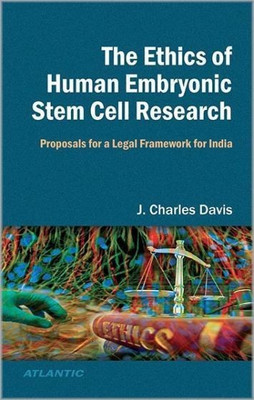The Ethics of Human Embryonic Stem Cell Research Proposals for a Legal Framework for India(English, Hardcover, Davis J.Charles)
Quick Overview
Product Price Comparison
The stem cell controversy is the ethical debate concerning the creation, treatment, and destruction of human embryos incident to research involving embryonic stem cells. The status of the human embryo and human embryonic stem cell research is a debatable issue as, with the present state of technology, the creation of a human embryonic stem cell line requires the destruction of a human embryo. Stem cell debates have motivated and reinvigorated the pro-life movement, whose members are concerned with the rights and status of the embryo as an early-aged human life. They believe that embryonic stem cell research instrumentalizes and violates the sanctity of life. The fundamental assertion of those who oppose embryonic stem cell research is the belief that human life is inviolable, combined with the belief that human life begins when a sperm cell fertilizes an egg cell to form a single cell. The book delves into the ethical problem and discusses a number of pertinent issues. It studies the concept of stem cell and its potentials and tries to provide basic scientific knowledge on stem cell biology in a language understandable even to those outside of the field. It explains the goals of human embryonic stem cell research and the key problem surrounding it and presents various pro and contra philosophical arguments that are used either to support or to oppose it. It also presents the standpoints of world religions and the legal positions of various countries on human embryonic stem cell research. It deals with the moral status and the personhood of the human embryo in scriptural Hinduism, chiefly of the classical period. It presents the outcome of an empirical survey on public opinion on embryonic stem cell research in India. It presents the findings of the study and the ethical proposals in the form of nine articles for a legal framework for India reflecting the entire study. It will appeal to policymakers and scientists for sensitivity and respect for religious traditions that have stood the test of time, and to the medical professionals. The proposals have common grounds on respect for human life, human dignity, sanctity of human life and fundamental right to life.


